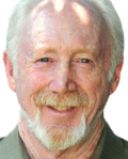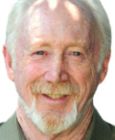Optimism
Is Just Knowing the Truth Enough to Set You Free?
The Truth will set you free—What a delightfully optimistic half-statement!
Posted April 15, 2013
“Then you will know the truth, and the truth will set you free.”
What a delightfully optimistic half-statement.
Yes, we said half-statement.
Even in the Biblical context that quote, from John, 8:32, is a part of a larger, more complex communication. But in today’s world, it is often invoked as a prescription for dealing with many of life’s problems.
If only it were that easy.
But it only delivers half of a message and absent the other half of the equation, the cliché, like so many others, winds up being lovely poetry of little or no practical value and often is damaging to the user.
The idea of truth seeking is a benign one. Unfortunately, the emotional landscape is littered with people who discovered the truth, stated it, restated it, analyzed it, prayed over it, discussed it for years, and still wound up living in the confusion created by merely identifying the problem.
The Gap Between Truthful Discovery and Real Change
Discovery of the truth is indeed the essential first step to changing or improving all things. Change is difficult at best and often much slower than we would hope.
Discovery all too often masquerades as change. Yet it is only the first part of the puzzle. In the simplest of examples; if I become aware that I am overweight and I realize it is because I am eating too much food and taking no exercise, is it likely that my weight will be reduced by simply stating the truth about my habits? We don’t think so.
If you are at all intrigued by now, we suppose we should fill in the blank we’ve created. Here’s how the original statement could read to be more effective:
“Know the truth, take proper new actions based on the truth, and the result of the new actions will be freedom.”
On our way to a new freedom, each of us has to do battle with a host of myths which limit us in our quest for happiness. One of those myths is that the truth alone is enough.
The truth itself is not the freedom. The truth, at best, can guide us to the actions which lead to emotional freedom. Without actions there can be no change. We have all known people who can recite a truthful litany of what has befallen them and relate it over and over, with tears, anger, and other feelings attached. And they can do it for years.
It is obvious that in order for me to lose weight, I must either reduce my intake of food or increase my exercise – probably both. Telling the truth about the problem will merely confirm that it exists and in a more dangerous way compound my relationship to the problem.
And so it is in all things: truth first, action next with the result being the potential for real change and the freedom it brings.


